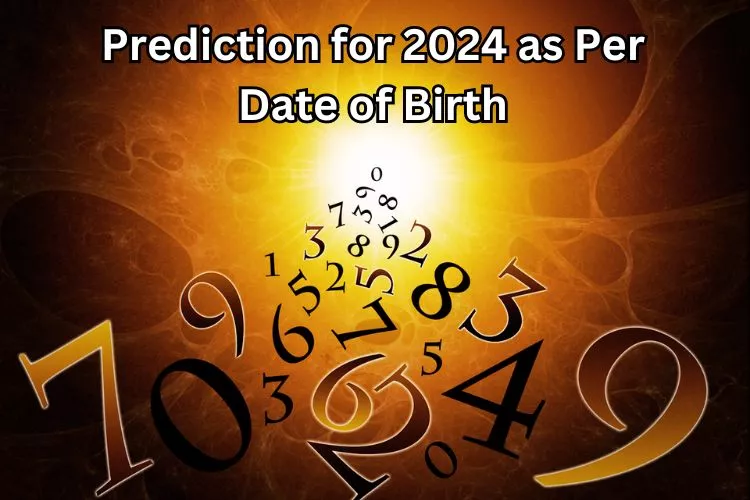Know About Karma And How Does It Impact Various Lives
As you sow, so you reap. This saying can be well understood as the principle of karma. If we make it simpler, it means you will get appropriate results, which is in accordance with your efforts.
Everything that we do, think or speak or whatever action we perform can be defined as karma. We perform karma in four ways. Thinking something, saying something, doing something & eating something.
To understand the principle of Karma easily, let us peep into the following:
If we eat stale and useless food, then we will fall ill to disease. At times, people associate karma with Newton’s laws of motion. Meaning, the principle of action and reaction. If you have done good deeds, then only good will come to you. Hinduism, Jainism and Buddhism have laid special emphasis on Karma. Let us understand karma, types of karma and the fruits of karma in easy language.
Table of Content
The Types Of Karma
All that we do is karma. So, several experts do not divide or classify karma into types and kinds. At the same time, some experts divide karma into three types based on the time of their origin:
- Sanchitta Karma
- Prarabdha Karma
- Kriyamaan or Agami Karma
Sanchitta Karma
Sanchit means to accumulate or collect. We are constantly marching on the path of karma. Even when we are just sitting idly, then also we are forming Karma. Accumulated karma means that whatever karma we are doing, it gets accumulated in the bank of karma. Many times, the result of karma is not received soon, it is called accumulated karma. In Bhagavad Gita, Lord Krishna has imparted to Arjuna, the knowledge about accumulated deeds. He said that Arjuna was reborn many times before and that He (Krishna) knew everything about his previous births.
Prarabdha Karma
Prarabdha Karma is also known as the destiny karma. It is often associated with luck. It can be considered a part of accumulated karmas, but we have to meet the fruits of destiny during this birth. Often, astrologers do use the term destiny karma. Astrologers describe Prarabdha Karma in terms of the position of planets and Mahadashas, etc. If you have accumulated good deeds, then you will also get good interest from destiny. So, you need not have to worry about this karma if you’re on the path of righteous deeds.
Kriya Karma (Kriyamaan or Agami Karma)
Kriyamana Karma is what we are doing now or about to do soon. We get the fruits of this too immediately. You can consider it this way, if you suddenly raise your hand on someone walking on the road, what will you get in return. In reply, you may get a sharp slap or you may be bombarded with abuses. If kriyamana karma is good, then your present passes very well. For example, if you have completed your target at the office, then you may get praised by your boss. Doing something good for a person or thinking of doing something good in the future is also part of this karma.
The 12 Rules (Laws) of Karma
Good and bad actions are always happening around us in some form or the other. Various scholars, including Gautama Buddha, have made certain rules of karma. Let us know in detail about the rules of karma-
- As you sow, so you will reap – Just like, if you do not prepare for the exams, you should not expect to pass, because if you have not done the work, you will not get the fruits of your hard work.
- The rule of creating good karma – It means you have to prepare to do something good for yourself. You cannot become a player by watching a player play well, unless you create yourself for it.
- The rule of humility- Means you should be polite with people in every situation. Many times you get angry over small things, it causes bad karma for you.
- The law of development – Means you should be motivated to do something good. If you stick to one thing, you cannot expect development.
- Rule of responsibility – Take full responsibility for all your actions. You fully and completely own them.
- Rule of relationship – All things in the world are related. You may find your work very mundane today, but if you do it properly, then you will definitely benefit from it.
- Law of Focus – Theory of Karma of Multi Tasking.
What Is Good Karma?
Just doing a good deed is not a good deed. You also have to make your behavior, thoughts and speech good. It may sound easy but is not that simple. You may help a poor person, it’s a good job. If you make fun of your partner, it’s bad karma. If you misbehave with someone every day, it may become your behavior. Thereafter, you may treat more people in a wrong or bad manner. Karma has to be dealt with and worked out very carefully. If you misbehave with your parents, as per the law of karma, your son or daughter may treat you in the same manner. There is no fault of your son or daughter in this matter, he/she has always learned by watching you behave badly. Therefore, you have to learn to do good deeds with proper thoughts, words and actions.
Karma In Religion – Karma In Hinduism, Jainism and Buddhism
The principle of karma has been adopted in almost all religions of the world. The scriptures of all religions inspire people to do good deeds. In Bhagavad Gita, the most sacred book of Hinduism, Lord Krishna has explained the principle of karma in a very simple and easy manner. He has asked human beings to be active and dynamic. Daydreamers get habituated to rely only on luck. They are like a pond, whose water starts to stink after some time.
Karma and Bhagavad Gita
The principle of karma has been adopted in almost all religions of the world. The scriptures of all religions inspire people to do good deeds. In Bhagavad Gita, the most sacred book of Hinduism, Lord Krishna has explained the principle of karma in a very simple and easy manner. He has asked human beings to be active and dynamic. Daydreamers get habituated to rely only on luck. They are like a pond, whose water starts to stink after some time.
Karma and Lord Buddha
Lord Buddha has clearly brought out the influence and effects of karma. Lord Buddha always said that the root cause of our sorrows is our own karma. If we get into the depths of the Panchasheel principles that the Lord Buddha put forward, we realise that they only inspire us to do good deeds. Lord Buddha’s Panchsheel doctrine about karma is as follows – to stay away from violence, not to steal or covet, to always abstain from sexual misconduct or adultery, to refrain from lying and to desist from any form of addiction or intoxication. Obviously, if we act by following these rules of Lord Buddha, then our accumulated, destined and active actions will become good.
Relation of Karma With Astrology
Vedic astrology is considered quite useful for reading & understanding karma. Vedic astrology has been used from ancient times to know the various types of karma and its fruits. There are various Vedic methods which can be used to understand the deeds of the present birth and previous births.
Also, Vedic astrology can give us an accurate estimate of the coming time, according to the position of the planets in the horoscope and explain the planets and the condition, which helps in predicting the favorable and unfavorable stages of life. Many people consider astrology to be only a tool of luck. Astrology never says what your fate is like. Astrology always leads to action. For example, if as per a person’s horoscope, he has the potential to become an IAS officer, and if he does the work accordingly, then he will get better results.
What Is Bad Karma?
Bad karma has been described in Hindu scriptures as follows-
- To be angry or angry towards someone
- Insulting the requester
- To have a habit of intoxication
- Consuming meat and liquor
- Selling Restricted Things
- To favor and spread rumours and fake news
- Stealing or tampering
- To torture animals
- To commit suicide
- Collecting excesses
- Motivating others to do evil deeds
Conclusion
Karma pervades the life of every individual and in fact it governs every nook and corner of the universe. The influence of Karma is inescapable for anyone and everyone. There is immense importance of karma as we glide through the various Holy scriptures of the various religions.
Doesn’t Buddhism look like an answer to that question? Talk to our Expert Astrologer to know more about it.
















